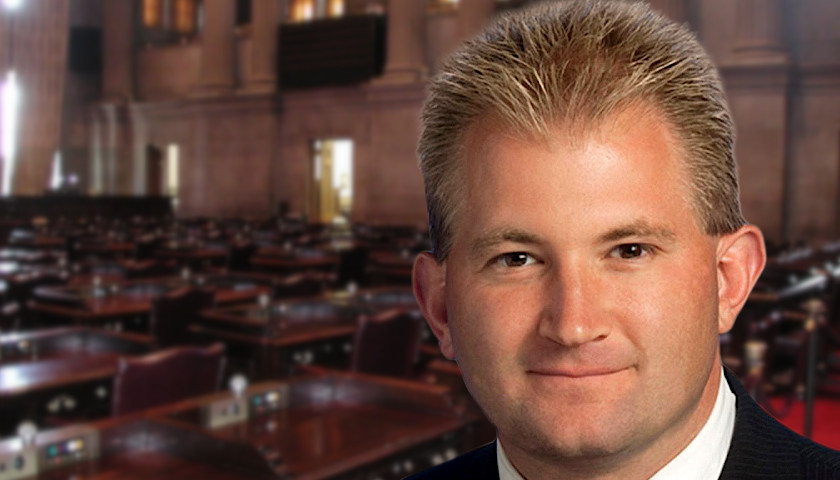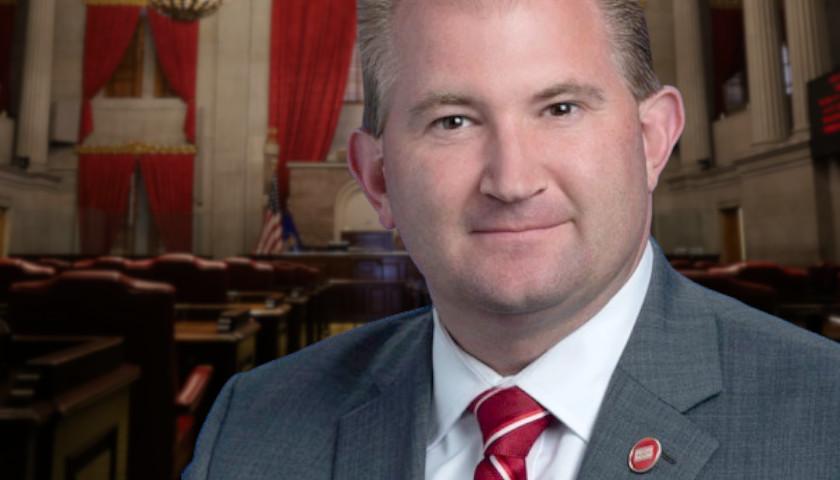As the chief officer of the Republican Party in the House, Majority Leader William Lamberth (R-Portland) told The Tennessee Star that he will not run for the role of Speaker after Glen Casada (R-Franklin) steps down.
Casada, who was elected into the role of Speaker of the House in January 2019, became embroiled in a media frenzy that started in the last days of the first session of the 111th General Assembly and lasted about three weeks.
After several private texts with racial and sexual content with his chief of staff were released, the chief of staff was accused of altering the date of an email to frame a regular protestor at the Capitol, allegations of surveilling committee rooms and wrongdoing on the vote to pass the Education Savings Account, the House Republican Caucus held a private meeting that resulted in a vote of no confidence in Casada as Speaker.
“I’m not interested in running as Speaker at this time,” Lamberth told The Star.
He further elaborated, “I ran for State Representative for a two year term – and that’s a blessing. I love serving my community.”
“I also ran to serve as Majority Leader for a two-year term,” explained Lamberth. “I need to see that through. With everything else changing and moving around, a few of us are just focused on policy and the bills that passed this year and the ones that didn’t and planning for next year’s legislative session and election season.”
In his role as Majority Leader, Lamberth is a pivot point for all major policy decisions between the House, Senate and Governor’s office. Lamberth says, “I love working on policy,” and with so many good conservative issues pushed this year, he wants to build on that.
Three other Republican House members have expressed publicly their interest in running for Speaker: Mike Carter (R-Ooltewah), Bill Dunn (R-Knoxville) and Matthew Hill (R-Jonesborough).
Carter, who lost to Casada in the 2016 House Republican Caucus election for majority leader by a vote of 42-29, accused Casada of trying to rig the outcome of an Ethics Committee advisory opinion he requested, a charge Casada vehemently denied.
Carter’s accusation, intentional or otherwise, implicates the Ethics Committee attorneys who participated in the meetings as well as the Chairman, Deputy Speaker and candidate for Speaker Matthew Hill.
Hill denied Carter’s claim and, as The Star reported, he documented the contradictions with Carter’s story through an email exchange with a legislative attorney who participated in the meetings.
Bill Dunn is currently the Speaker Pro Tempore, selected as such during the House Republican Caucus elections in November 2018 and then elected to the position by the full bi-partisan House membership in January 2019.
Lamberth told The Star that they will know more about the transition to a new Speaker when Casada returns from vacation June 3, when the leadership team will meet with the Speaker and begin the process.
As he has said both publicly and privately, Lamberth reiterated to The Star that he would like to see Governor Bill Lee call a special session rather quickly, with his preference being by the end of June. Lamberth envisions a House Republican Caucus meeting the night before to select a new Speaker.
Lamberth said that while three House Republicans have expressed interest in running for Speaker, an official announcement as a candidate will happen after the Caucus meeting is scheduled.
The rules for conducting the House Republican Caucus meeting and elections may still have to be determined, depending on who announces their candidacy for Speaker.
The Caucus Chairman, a position currently held Cameron Sexton (R-Crossville) who beat Jason Zachary (R-Knoxville) with 58 votes during November 2018’s House Caucus elections, is responsible for running Caucus meetings. Sexton had that task during the May 20 private House Republican Caucus meeting to determine Casada’s fate.
While he has not made a public statement on the matter, Sexton is widely considered to be one of the people who would run for Speaker. To do so, it is unclear whether Sexton would have to step down from his current role of Caucus Chairman prior to the Caucus elections, so that a newly-elected Caucus Chairman could oversee the election for Speaker.
Lamberth told The Star he would like to see resolution “sooner than later,” because it is “best for the Caucus, Party and State for us to get back to serving our constituents and spending time with our families and in our districts.”
With regard to the calling of a special session by the Governor, Lamberth said there is some question as to whether one can be called for the sole purpose of electing a new Speaker. There are some legislative matters that are not controversial in nature, according to Lamberth, that could be addressed to create a “belts and suspenders approach” to the calling of the session.
A special session could be called for some legislation that could be passed and then choose the Speaker as part of that, Lamberth suggested. As an example, Lamberth cited court rules that are already in existence and were set to be updated, but didn’t make it to the Calendar and Rules Committee for scheduling.
As for himself, Lamberth said he wants to continue to practice law, be with his family and in the community, adding “This time of year, I don’t want to be in Nashville.”
Expressing no opinion or preference as to the next Speaker, Lamberth stated, “I supported the last Speaker fully and will support the next Speaker fully.”
Lamberth concluded, “I hope the caucus will pick someone who will be a conservative leader for this state, because it’s working.”
—
Laura Baigert is a senior reporter at The Tennessee Star.
Background Photo “Tennessee House of Representatives” by Ichabod. CC BY-SA 3.0.





